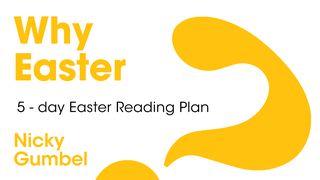Praying the PsalmsSýnishorn

Learn to use Scripture as the foundation for your prayer life using this 5-day devotional. Ben Patterson will help you understand the words of the Psalms more deeply and invite you to make them your own personal conversation with God.
Psalm 1
1 Oh, the joys of those who do not follow the advice of the wicked, or stand around with sinners, or join in with mockers.
2 But they delight in the law of the Lord, meditating on it day and night.
3 They are like trees planted along the riverbank, bearing fruit each season. Their leaves never wither, and they prosper in all they do.
4 But not the wicked! They are like worthless chaff, scattered by the wind.
5 They will be condemned at the time of judgment. Sinners will have no place among the godly.
6 For the Lord watches over the path of the godly, but the path of the wicked leads to destruction. (NLT)
GET READY. As we begin this journey, there are two choices—just two—that are spoken of only in brief outline in this psalm, but which will present themselves full blown in the psalms that follow. In Psalm 1 we know them as the path of the godly and the path of the wicked.
These paths are not merely two separate directions, one going east, the other going west, and never colliding. They are two different ways of life, implacably opposed to one another. Neither will tolerate the other.
So get ready. The first two psalms have been called the gateway to the book of Psalms. Strictly speaking, they aren’t even prayers but preparation for prayer—meditations on the nature of things in the universe, the world we move in when we pray. So take note and be forewarned: The world of prayer is a world of intense conflict. The enemy is never far away when we pray. Prayer is not escape; it is engagement, and the Psalms are the prayers of a warrior, the Warrior. The question is not whether you’ll be in the fight but on whose side you’ll fight.
Oh, the joys of those who do not follow the advice of the wicked, or stand around with sinners, or join in with mockers. (1)
Examine your life: what you listen to and look at, whom you associate with and identify with. There seems to be a progression in this verse—from listening to acting to outright mocking what is true and good.
One Old Testament scholar compares listening to the advice and ways of sin to looking at the Greek mythological figure Medusa. One look at her and you freeze.* To have a frozen heart is to be cold and hard, not only toward God, but also toward other people.
Stop now. Confess the ways you are frozen hearted—toward God or others.
But they delight in the law of the Lord, meditating on it day and night. (2)
Again, examine your life. Do you spend quality time in the Word of God? Is it your delight? Pray that it will be.
Sin is directional: It only looks around horizontally, but not up. The advice of the wicked, the society of sinners, is all it knows. Righteousness is directional too: It looks up to God and meditates on his ways, his truth, his law. It sees things from heaven’s point of view. Heaven’s perspective is breathtaking and delightful!
To pray is to meditate, to hear God and answer God. To hear well is to pray well. We would never speak to God if God had not first spoken to us. Your prayer life will never go further than your grasp of God’s Word.
Right now—ask the Lord to speak his Word with “its full and proper impact”** into your life.
They are like trees planted along the riverbank, bearing fruit each season. Their leaves never wither, and they prosper in all they do. (3)
Remember, since life is war, you must be sustained for the long haul. Pursue the life of meditation and prayer the way tree roots seek water.
Your choice is either to flourish like a well-watered tree or to allow yourself to be blown about like chaff, to be a person of substance or to be shallow and hollow inside. Pray that God will help you choose well.
*Bruce K. Waltke, Finding the Will of God: A Pagan Notion? (Grand Rapids, MI: Eerdmans, 2002), 107.
**J. I. Packer, Knowing God (Downers Grove, IL: Inter Varsity Press, 1973), 18-19.
Ritningin
About this Plan

Under the guidance of Ben Patterson, learn to use the poetry of the Psalms to bring your praises and petitions to the Lord. Take courage in the fact that the Psalms express a multitude of human emotions that help you speak to God.
More








